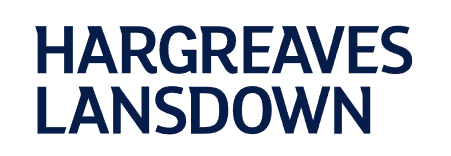Occasionally, the best UK stockbrokers will take a risk and change the British retail investor experience forever.
In this article, we’ll spotlight five pioneering stockbrokers who did just that in the last 40 years and left their mark on the industry.
Between these five regulated brokers, innovation after innovation has steadily brought down investor costs which will have led to much better outcomes for our personal finances.
Trade shares with zero commission. Open an account with just $100. High performance and useful friendly trading app. Other fees apply. For more information, visit etoro.com/trading/fees.
Large UK trading platform with a flat account fee and a free trade every month. Cheapest for investors with big pots.
The UK’s no. 1 investment platform for private investors. Boasting over £135bn in assets under administration and over 1.5m active clients. Best for funds.
Youinvest stocks & shares ISA offers lower prices the more you trade! Which? 'Recommended Provider' for last 3 years.
Choose a pre-made portfolio in minutes with Nutmeg. Choose your level of risk and let Nutmeg efficiently handle the rest.
Buy and sell funds at nil cost with Fidelity International, plus simple £10 trading fees for stocks & shares and ETFs.
Capital is at risk
Trade stocks & options on the advanced yet low-cost Freedom24 platform that arms retail investors with the tools to trade like professionals.
Capital is at risk
Hargreaves Lansdown – Execution-only
Before the likes of Hargreaves Lansdown, placing a trade via your broker was closer to booking an appointment with a medical consultant than buying a Coke from a vending machine.
Stockbrokers were knowledgeable, qualified individuals who were incentivised to increase the trading volumes of their clients. Some offered daily tips and others actively managed the stock portfolios of clients on their behalf.
When Hargreaves Lansdown (read our review) was founded in the early ‘80s, all of its stock trade orders were conducted over the phone.
This meant that each share bought still involved a degree of human interaction. However, a significant change had occurred behind the scenes that made way for a new era of brokerage.
HL offered an execution-only service. This meant that no longer would your contact offer you advice or tips on a potential trade. Gone were cold calls from your broker, soliciting funds for a new trading idea. Now, a call centre team awaited your call.
This simple shift away from financial advice meant that the person picking up your phone call was merely a clerk pushing buttons, rather than a fast-talking, financially literate stockbroker.
This was a revolutionary business model that dramatically lowered the cost of trading. Brokers no longer need to offer financial incentives like commissions to a team of salespeople. Trades were efficiently processed by staff at a lightning pace. This reduced the overhead of a brokerage dramatically and allowed firms like HL to scale up quickly without hiring thousands of costly heads.
Following the Big Bang financial market reforms in 1986, the Government committed to moving public ownership of several large nationalised firms into private hands. This provided plenty of opportunity for firms such as Hargreaves to increase their client book several-fold over the course of a few years. Other brokers took note.
Sharelink – Online ordering
ShareLink was acquired by Charles Schwab in 1995. Sharelink, which was founded by BT and later floated on the London Stock Exchange, originally operated as an execution-only telephone broker.
Charles Schwab used its acquisition as an entry point into the UK market; gaining a loyal client base and regulatory credentials in one swoop. The US giant wasted little time in launching a ShareLink website and began to offer online trading for the first time in the UK – a service it had already rolled out to acclaim in the US.
Online ordering began an acceleration of automation in the execution of trades. Brokers could receive orders from clients and execute them with only minimal human input. As the incremental cost per trade fell, a price war began.
By 1999, a group of UK rivals, spearheaded by Barclays Stockbrokers and Hargreaves Lansdown, among others, were slashing trading commissions in an effort to win new customers.
This period saw frenzied levels of retail investor participation in Initial Public Offerings of new dotcom tech companies that were bringing listings to the London market on a weekly basis.
Online trading is still the default trading product offered by brokers today, which shows that ShareLink’s move onto the web was one that helped shape the investing experience for years to come.
interactive investor – Flat fees
For most of the 20th Century, stockbrokers charged fees calculated as a % of the amount traded, subject to a minimum fee. This created a powerful incentive for brokers to pressure clients into trading large volumes and the average armchair investors were discouraged from creating diversified portfolios of many stocks.
The % fee returned again after the Retail Distribution Review conducted by the FSA in 2006, which indirectly led to brokers charging separate ‘account fees’ in an effort to claw back lost revenues from the ban on kickbacks from fund managers that the RDR had implemented.
Percentage fees are economic when trading small amounts and funding a brokerage account with a small initial deposit. However, they can translate into eyewatering rates when applied to retirement pots of £300,000, £1m or even higher.
It is staggering to reflect upon the fact that a 1% annual fee applied to £1m of assets results in a £10,000 annual fee. In contrast, £10,000 invested for 33 years at 5% would grow to another £1m pot of assets.
Individual investors can suffer from significantly eroded returns when fees are applied as a percentage and have no maximum cap.
Interactive investor, a Manchester-based stockbroker now owned by asset manager Abrdn, decided to change that for the better in 2018, when it announced it would move to a ‘flat-fee’ model.
Since then, investors have been charged as little as £9.99 per month for an account – not a bargain if you’re trading a portfolio worth £2,000. But if you’re about to retire, this modest charge will represent an almost imperceptible % of your total assets.
Large investors now had an easy choice when looking for a broker that wouldn’t penalise them for owning a large and largely inactive account.
Freetrade Ltd – zero trading commissions
Freetrade was founded in 2016, and from the outset has charged its users ‘nada’, ‘nothing’, ‘zilch’ for buying or selling its wide array of individual stocks and shares.
Furthermore, its most basic share trading account has zero fees. Additional products, such as a stocks & shares ISA and an interest-bearing cash account come with a monthly charge.
Freetrade is an excellent example of a new generation of stockbrokers that tout for clients in the UK. ‘Fee-free’ brokers, (or to be more accurate – trading commission free), are taking over the web.
This breed of stockbroker is attractive to newcomers, who feel that they can enter and exit positions without losing a portion of their equity to a middleman. Fixed trading commissions have always been more severe for young beginners looking to trade positions of less than £100 per trade. In this way, zero commissions encourage savers to drip-feed small amounts into the stock market that might have never been invested in the first place.
Freetrade, and other investing apps such as eToro and Trading 212 have reached the inevitable conclusion of the decades-long price war on trading commissions, started by Hargreaves Lansdown back in the 1990s.






